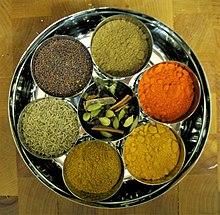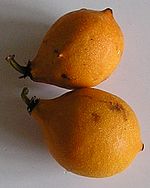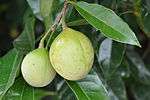Baramati ([baːɾamət̪iː]) is a city, a tehsil and a municipal council in Pune district in the state of Maharashtra, India. The city is about 100 km southeast of the city of Pune and about 250 km from Mumbai.
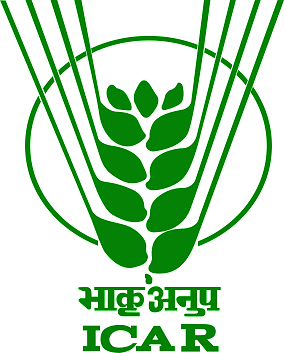
The Indian Council of Agricultural Research (ICAR) is an autonomous body responsible for co-ordinating agricultural education and research in India. It reports to the Department of Agricultural Research and Education, Ministry of Agriculture. The Union Minister of Agriculture serves as its president. It is the largest network of agricultural research and education institutes in the world.

The Central Arid Zone Research Institute (CAZRI) is one of the biggest research institutes of the Indian Council of Agricultural Research (ICAR), an autonomous organization working under the aegis of the Department of Agriculture Research and Education (DARE) of the Ministry of Agriculture and Farmers Welfare of Government of India. CAZRI has the distinction of being one of the first institutes in the world exclusively devoted to arid zone research and development. The institute made a humble beginning in 1952 when Government of India initiated Desert Afforestation Research Station at Jodhpur to carry out research on sand dune stabilization and for establishment of shelter belt plantations to arrest wind erosion. It was reorganized as Desert Afforestation and Soil Conservation Station in 1957 and finally in its present form Central Arid Zone Research Institute in 1959 on recommendation of the UNESCO (United Nations Educational, Scientific and Cultural Organization) expert, Prof. C.S. Christian of the Commonwealth Scientific and Industrial Research Organisation (CSIRO), Australia. In 1966, the institute was brought under the administrative control of Indian Council of Agricultural Research (ICAR), New Delhi.
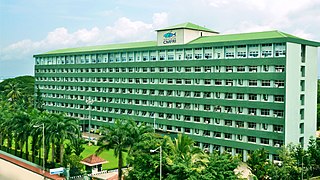
The Central Marine Fisheries Research Institute was established in the government of India on 3 February 1947 under the Ministry of Agriculture and Farmers Welfare and later, in 1967, it joined the Indian Council of Agricultural Research (ICAR) family and emerged as a leading tropical marine fisheries research institute in the world. The Headquarters of the ICAR-CMFRI is located in Kochi, Kerala. Initially the institute focused its research efforts on creating a strong database on marine fisheries sector by developing scientific methodologies for estimating the marine fish landings and effort inputs, taxonomy of marine organisms and the biological aspects of the exploited stocks of finfish and shellfish on which fisheries management were to be based. This focus contributed significantly to development of the marine fisheries sector from a predominantly artisanal, sustenance fishery till the early sixties to that of a complex, multi-gear, multi-species fisheries.

Kerala Agricultural University (KAU) is a state university for agricultural education, recognised as a State Agricultural University by the Indian Council of Agricultural Research (ICAR). It is situated in Vellanikkara, Kerala, India.

The College of Agriculture Vellanikkara, is the main campus and the premier college of Kerala Agricultural University, situated in Thrissur of Kerala state in India. The College of Agriculture imparts agricultural education at undergraduate, graduate and doctoral levels. The college has 22 departments, 11 All India Coordinated Research Projects and 11 centres undertaking the multiple activities of teaching, research and extension. The college is located in the picturesque of Kerala Agricultural University where the college and its departments itself spans the central campus in Vellanikkara, Thrissur. The college received Sardar Patel Outstanding Institution Award more than 10 times consecutively which is awarded by the Indian Council of Agricultural Research, for the institution's efficiency in contributing most number of Top ranks in JRF and SRF All India Entrance Examinations. The IPR cell under this college plays a pivotal role in establishing and promoting the Intellectual rights for products and services of the state and has secured the recognition of being the India's leading government institute for bagging most Geographical Indication tags. Agri Business Incubator functioning under the college is one of the prosperous and promising avenue for rising entrepreneurs of the state. The college was the first college to be awarded 'The Best College Award' by Kerala Agricultural University. College of Agriculture Vellanikkara is the only college under the university to win the intercollegiate Golden Lady Arts Trophy consecutively for about a decade. Dr. Mani Chellappan. Professor and Head, Department of Agricultural Entomology, CoA Vellanikkara, is the current Dean of the college

Uttar Banga Krishi Vishwavidyalaya is a public state agricultural university in Pundibari about 11 km north-west of Cooch Behar, West Bengal, India. It offers degree courses in Agricultural Engineering, Agriculture and Horticulture. It was established in 2001 by an Act of the West Bengal legislature.

Chaudhary Charan Singh Haryana Agricultural University is a public funded agricultural university located at Hisar in the Indian state of Haryana. It is the biggest agricultural university in Asia. The university has 8,645 acres (3,499 ha) of land. It is named after India's fifth Prime Minister, Chaudhary Charan Singh. It was ranked 7th in India by the National Institutional Ranking Framework in the agriculture and allied sector ranking for 2024.

Central Agricultural University is an agricultural university at Lamphelpat, Imphal in the Indian state of Manipur.

Chaudhary Sarwan Kumar Himachal Pradesh Krishi Vishvavidyalaya, also known as CSK Himachal Pradesh Agricultural University, formerly Himachal Pradesh Krishi Vishvavidyalaya, is an agricultural university at Palampur in the Indian state of Himachal Pradesh. It was established on 1 November 1978 as an expansion of the existing College of Agriculture established in May 1966. Hill agriculture is the focus of this university. The university is accredited by the Indian Council of Agricultural Research (ICAR).
Krishi Vigyan Kendra Kannur is a front-line agricultural extension center and one of the 700 KVKs financed by the Indian Council of Agricultural Research (ICAR). It opened on 30 March 2004 on the premises of Pepper Research Station, Panniyoor under Kerala Agricultural University. KVK primarily works to influence the other extension systems of the district, caters to the training needs of the farmers and extension functionaries, and facilitates the spread of technologies tailored to the diverse environment of farmers.

Mitraniketan Vishwavidyapeetam for Open Learning & Total Development is a Non-Governmental organization located at Vellanad, which is 25 km away from Thiruvananthapuram, the capital of Kerala state in South India. It is a 500-member community, including a staff of 100 men and women. Mitraniketan works in the fields of innovation, training and extension in community development, environment, science, education and appropriate technology. The project was begun with a view to offering education and training in a holistic spirit to primarily socially underprivileged children and youngsters. The organization focuses on alternative education mode for development.
National Innovations in Climate Resilient Agriculture (NICRA) was launched during February 2011 by the Indian Council of Agricultural Research (ICAR) with the funding from the Ministry of Agriculture, Government of India. The mega project has three major objectives of strategic research, technology demonstrations and capacity building. Assessment of the impact of climate change simultaneous with formulation of adaptive strategies is the prime approach under strategic research across all sectors of agriculture, dairying and fisheries.

The Indian Institute of Horticultural Research (IIHR) is an autonomous organization acting as a nodal agency for basic, strategic, anticipatory and applied research on various aspects of horticulture such as fruits, vegetable, ornamental, medicinal and aromatic plants and mushrooms in India. The institute has its headquarters in Bengaluru, Karnataka, India and is a subsidiary of Indian Council of Agricultural Research (ICAR), New Delhi, under the Ministry of Agriculture, India. It recently has been ranked 1st for the combined years 2019-20 and 2020–21 by the ICAR.
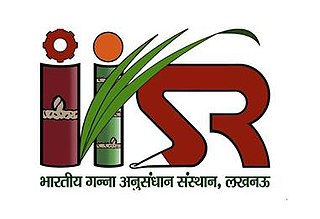
The Indian Institute of Sugarcane Research is an autonomous institute of higher learning, under the umbrella of Indian Council of Agricultural Research (ICAR) by the Ministry of Agriculture, Government of India for advanced research in sugar cane agriculture. The Institute is located on Raibareli Road, Dilkusha in Lucknow, Uttar Pradesh, India. While, The Central Sugarcane Research Institute established in 1912 is located in Coimbatore, Tamil Nadu, India. It works also under the Indian Council of Agricultural Research.
Van Vigyan Kendra (VVK) or Forest Science Centres (FSC) has been established by Indian Council of Forestry Research and Education (ICFRE) of the Ministry of Environment and Forests, Govt. of India. It intends to help disseminate various technologies developed by farmers, forest based industries and forest research institutes.
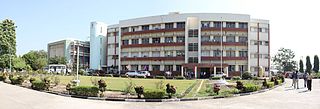
ICAR - Directorate of Groundnut Research (ICAR-DGR) formerly known as National Research Centre for Groundnut is a premier national level institute set up by the Indian Council of Agricultural Research, Ministry of Agriculture of India to cater to the needs of agricultural science research in the field of groundnut (peanut) crop in India. ICAR-DGR was established in 1979, Gujarat to give a fillip to research for enhancing productivity of groundnut in keeping with its importance among the oilseed crops of India. The research centre came into being as the first crop commodity research unit under the category of NRC's of the Indian Council of Agricultural Research, as an autonomous body set up as a registered society. The National Research Centre on Groundnut (NRCG) was elevated to the level of a Directorate in the year 2009 and rechristened as the Directorate of Groundnut Research.

The Central Plantation Crops Research Institute (CPCRI) is a central research institute for plantation crops, headquartered in Kasargod, Kerala in India. It was established in 1970 as one of the agricultural research institutes in the National Agricultural Research System (NARS) under the Indian Council of Agricultural Research (ICAR), Government of India. The Institute has the mandate to undertake research on coconut, areca nut, palmyra, and cocoa.
A Krishi Vigyan Kendra is an agricultural extension center in India. The centres are associated with a local agricultural university, and serve as links between the Indian Council of Agricultural Research and farmers to apply agricultural research in a practical, localized setting. All KVKs fall under the jurisdiction of one of the 11 Agricultural Technology Application Research Institutes (ATARIs) throughout India.

